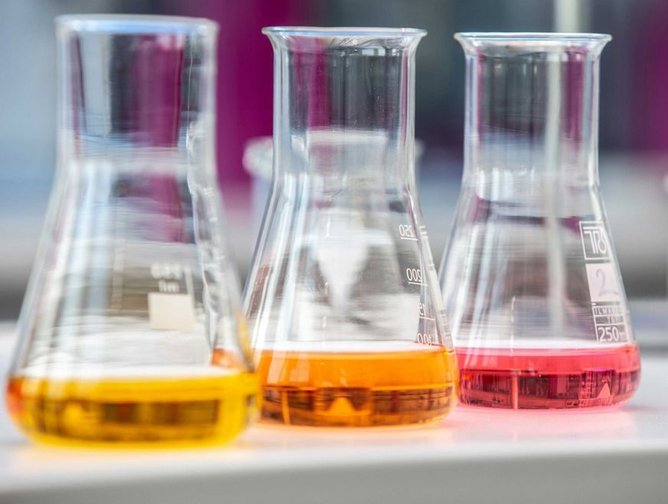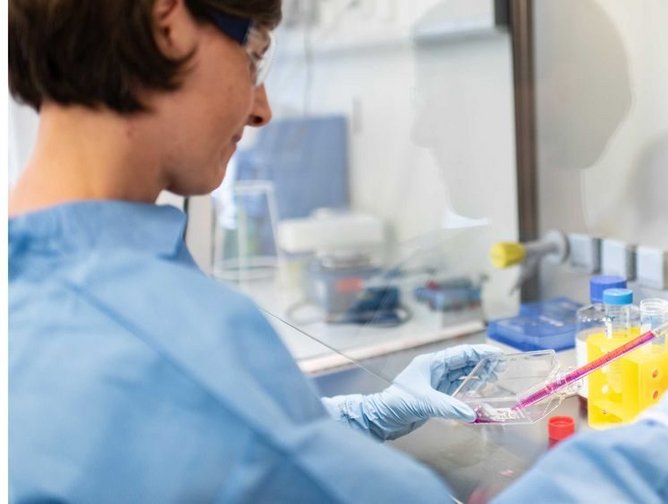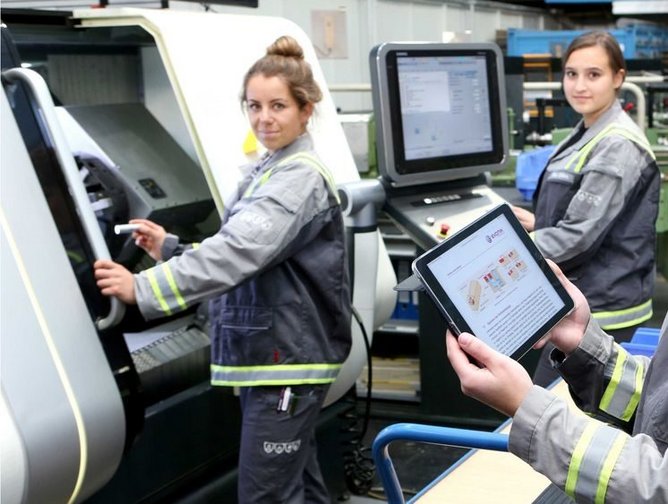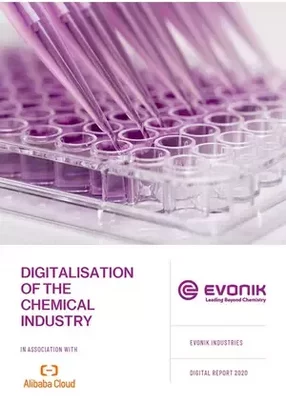Evonik Industries: digitalisation of the chemical industry
After graduating with an engineering doctorate in the field of fluid dynamics and Rheology, Henrik Hahn, Chief Digital Officer of Evonik Industries and and Chairman of the Management Board of Evonik Digital GmbH, began his career at Evonik Industries more than 20 years ago, in the process technology and engineering department. Afterwards, he moved to chemical research and development, headed a corporate start-up, later joining the corporate strategy department and more recently taking on the role of Chief Digital Officer of Evonik Industries and Chairman of the Management Board of Evonik Digital GmbH.
When it comes to establishing a digital innovation strategy, Hahn details that Evonik Industries first approach to establishing a strategy is to establish how the strategic business unit and functional departments can benefit from the use of digital technologies and take advantage of a data centric approach. “Innovation is not fulfilling any self purpose. We are trying to make it a part of the strategy for a specific strategic model, putting people at the heart of this realisation. While I believe it is unlikely that the chemical industry will see a real disruptive transformational change, it will be lifted into the digital age. So we are looking to see how new technologies and data centric approaches can support our overall strategy and drive efficiency.”
However, Hahn emphasises that “bringing in new technology means change. Therefore, you could argue that digital transformation is nothing more than a big change management program. As a result, everything starts with being aware that we are about to change not only internal processes but processes relating to external operations.” Breaking down digital transformation into four elements: create, communicate, deliver and exchange offerings, Hahn explains that along this journey, each element must be informative and inspirational for people as well as understandable as to why the transformation is taking place. “The people dimension is key. It’s not just about technology, it's much more about people, trust and explaining why we believe that digital transformation is something that will occur in our industry. Without people even the best technology will never materialise if people do not understand the benefits.”
In the chemical B2B space, Hahn reflects on the industry’s technology-centred approach. “With engineering, technology and sustainability at the heart of most industries, being an early adopter - particularly when it comes to production and technology - has ensured that the chemical industry has sustained its place, where other industries have been lost.” Hahn further comments that in today’s digital era, “representatives of our industry have broadened the technology discussion from a production or R&D standpoint, to harnessing technology in the administrative space relating to the digitalisation of corporate finance and human resources, taking advantage of artificial intelligence (AI), robotic process automation (RPA) and blockchain. With every aspect of our business being affected by technology, we need to ensure that we have the foundations in the form of data to enable this technology.”
When it comes to digital transformation at Evonik Industries, Hahn details that “looking into the production space, everything is centred around smart operations and interconnectedness. As a result, network and IoT solutions can be utilised to improve the flow of information and improve access to insights within the production plants by taking advantage of sensor technology and data exchange. From a supply chain perspective, machine learning models increase the efficiency of the entire supply chain network. Then, from a marketing and sales perspective, ecommerce is becoming increasingly important in the B2B space and chemical industry, not only to benefit from transactional efficiency gains, but also the ability to operate and engage almost 24/7 with potential and existing customers.” Another key aspect for Evonik Industries, that has only increased with the impact of COVID-19, is the ability to enable remote interaction. “Not only in the current pandemic situation it is advantageous to utilize immersive technologies like augmented and virtual reality to conduct interactions with our customers remotely providing expertise on products and applications.”
In order to drive the company’s digital transformation, Hahn explains that as part of his role as CDO, he is tasked with looking into opportunities for partnerships within the industry and cross industries. “We have a couple of partnerships with large technology companies as well as smaller companies and startups. When we started our transformation journey, I asked myself: where do trends come from and where are they being driven forth? Which led me to Alibaba and IBM, for example. Partnerships in my view are really essential in order to develop innovative business model components, driving collaboration and learning from others.”
Expanding on the impact of COVID-19, Hahn reflects that “in comparison to other sectors the chemical industry is doing relatively well. I believe that the reason for this is that the industry is still generating output. At Evonik Industries we are taking it very seriously to comply with social distancing while maintaining our production. A particular challenge that I have seen within the industry is isolated supply chains. At Evonik Industries – probably as well as in other companies – we need to ensure the we mitigate the risk of having an isolated supply chain. When it comes to international supply chains, it is very important not to undergo a situation where a company finds itself isolated.” Post COVID-19, Hahn explains that “it’s of course very hard to tell what the future will look like, but I think the chemical industry itself is robust and we will more or less manage to get through 2020 without too much trouble, as our world relies on the chemical industry. Without chemistry the world would be dull, dark, and simply disastrous. We would have no iPhones, no LED lighting, no almost anything. Almost everything in our world is centered around chemistry, from the food we eat to personal or health care to mobility. The chemical industry, in other words, acts as the industry of the industries. Therefore I'm really optimistic that even if we face challenges we will have a bright future and act as an innovation engine, to enable new or better product solutions.”






